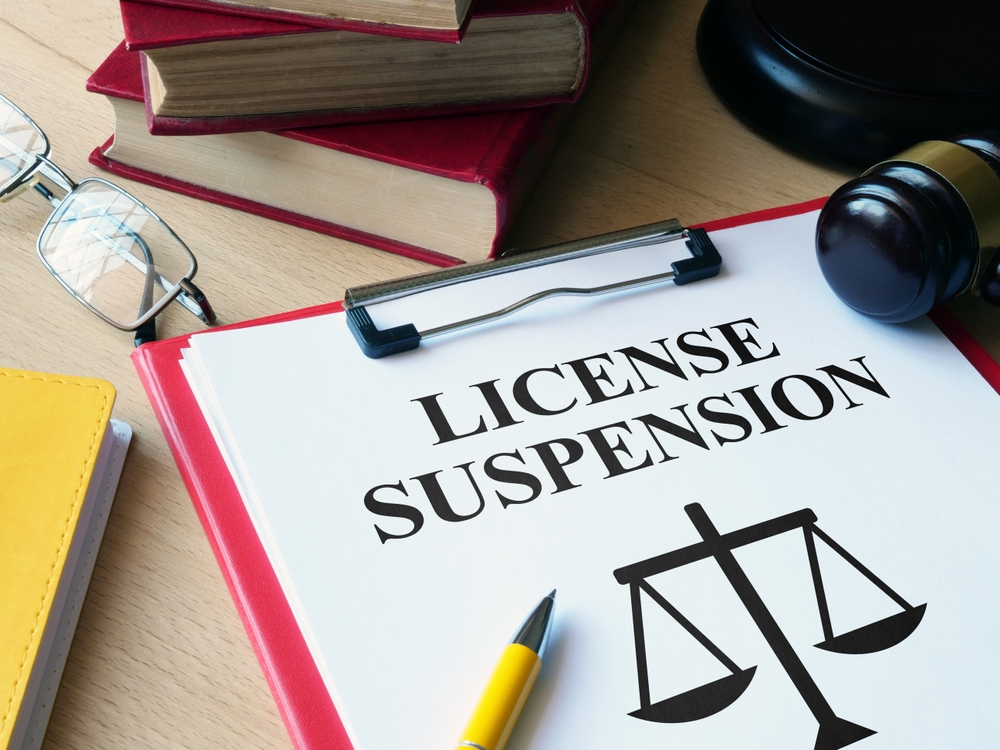
Facing a fourth or fifth OUI charge in Massachusetts means entering some of the most serious territory under state law. These cases are classified as felonies, carrying penalties that include mandatory jail time, years, or even a lifetime without a license, as well as the lasting impact of a felony record. For many, the question is not only about punishment but about how to preserve any path forward.
At Riccio Law, we know the pressure these cases bring. Anthony Riccio’s background as a prosecutor, combined with his recognition in Super Lawyers 2025, means he understands how repeat-offence cases are built and how to expose their weaknesses. His focus is on protecting clients when the law leaves little margin for error.
If you or someone close to you has been charged with a fourth or fifth DUI in Massachusetts, do not wait. Contact Riccio Law today for a confidential consultation with an attorney prepared to handle the most serious OUI charges.
After two prior convictions, Massachusetts law treats every OUI as a felony with little room for leniency. By the fourth or fifth charge, the court views the case not as an isolated mistake but as a pattern that demands severe punishment.
What sets these cases apart is the lifetime lookback rule under Melanie’s Law. Every prior OUI counts, no matter how long ago or where it happened. An old conviction from decades past, even one from another state, can be used to push a current case into felony status.
For anyone charged at this level, the case is not simply about fines or license suspension; it is about the consequences of a conviction. It is about avoiding the long-term effects of a felony record, protecting your ability to work, and preserving the few legal options that remain available.
A fourth OUI conviction moves beyond the possibility of probation or diversion. The law requires a felony sentence with mandatory jail and long-term license loss.
Fourth Offense OUI Penalties at a Glance
|
Penalty |
Details |
| Fines | $1,500 to $25,000 |
| Mandatory Jail | 1 to 5 years (minimum 1 year must be served) |
| License Suspension | 10 years |
| Hardship License Eligibility | Possible after 5 years (work/education), 8 years (general) if conditions are met |
| Ignition Interlock Device (IID) | Required during hardship period and 2 years after reinstatement |
Refusing a breath test at this stage results in a lifetime suspension from the RMV, regardless of the outcome of the court case. These penalties reflect the strict enforcement of DUI and OUI defense laws, which grow increasingly severe with each conviction.

A fifth OUI conviction leaves almost no flexibility in sentencing. It is a felony that carries mandatory state prison time and results in permanent loss of driving privileges.
Fifth Offense OUI Penalties at a Glance
|
Penalty |
Details |
| Fines | $2,000 to $50,000 |
| State Prison | 2 to 5 years (minimum 2 years must be served) |
| License Suspension | Lifetime revocation |
| Hardship License | Not available at this level |
| Ignition Interlock Device (IID) | No reinstatement possible, as driving privileges are permanently revoked |
Unlike earlier offenses, a fifth OUI conviction means there is no legal path back to a driver’s license in Massachusetts. The felony record, combined with prison exposure, makes the defense strategy the most critical factor in protecting a client’s future.
In felony-level OUI cases, the Registry of Motor Vehicles (RMV) penalties can be as damaging as the court sentence. These suspensions take effect immediately and often outlast the criminal process.
Understanding and navigating both the court and RMV systems is critical. Missing a short filing deadline or failing to contest a suspension properly can lock in years or a lifetime without a license.
Prosecutors treat fourth and fifth OUIs as career-defining cases, but this also means their evidence must withstand strict scrutiny.
Key strategies may include:
A felony OUI defense is not only about the new charge; it often involves testing the state’s entire record. With courtroom experience and recognition as a Super Lawyer in 2025, Attorney Anthony Riccio delivers strategies tailored for high-stakes cases.

With fourth and fifth OUI charges classified as felonies, prosecutors often request a dangerousness hearing under Massachusetts law. At this hearing, the court decides if the accused should remain in custody while the case is pending. Judges may order pretrial detention of up to 120 days or impose strict release conditions such as monitoring, travel restrictions, or treatment requirements.
These hearings move quickly and require careful preparation. A defense lawyer’s role is to show why continued detention is unnecessary and to argue for conditions that allow the client to remain at home and employed.
Facing a fourth or fifth OUI means the stakes couldn’t be higher. Choosing the right DUI attorney in Massachusetts can determine whether you face years in prison or preserve a path forward.
When your freedom and license are on the line, you need more than just legal Representation; you need a trusted advocate who combines experience, recognition, and results.
Yes. Massachusetts applies lifetime lookback rules, so prior convictions from other states can be used to enhance penalties.
It’s rare, but possible. Outcomes depend on the strength of the evidence, prior records, and plea negotiations with prosecutors.
Jail terms are served locally in a House of Correction. State prison sentences are longer, more restrictive, and carry harsher collateral effects.
It eliminates the possibility of obtaining a legal driving permit, including hardship licenses, which can impact employment, medical care, and family responsibilities.
Yes. Under Massachusetts’ lifetime lookback law, prior OUIs never “expire” and can always be counted toward new charges.
A fourth or fifth OUI charge in Massachusetts is a felony, carrying mandatory penalties and potential pretrial detention. Waiting only makes the situation worse.
At Riccio Law, clients work directly with Attorney Anthony Riccio. Every case begins with a confidential consultation focused on immediate steps to protect freedom and preserve options.